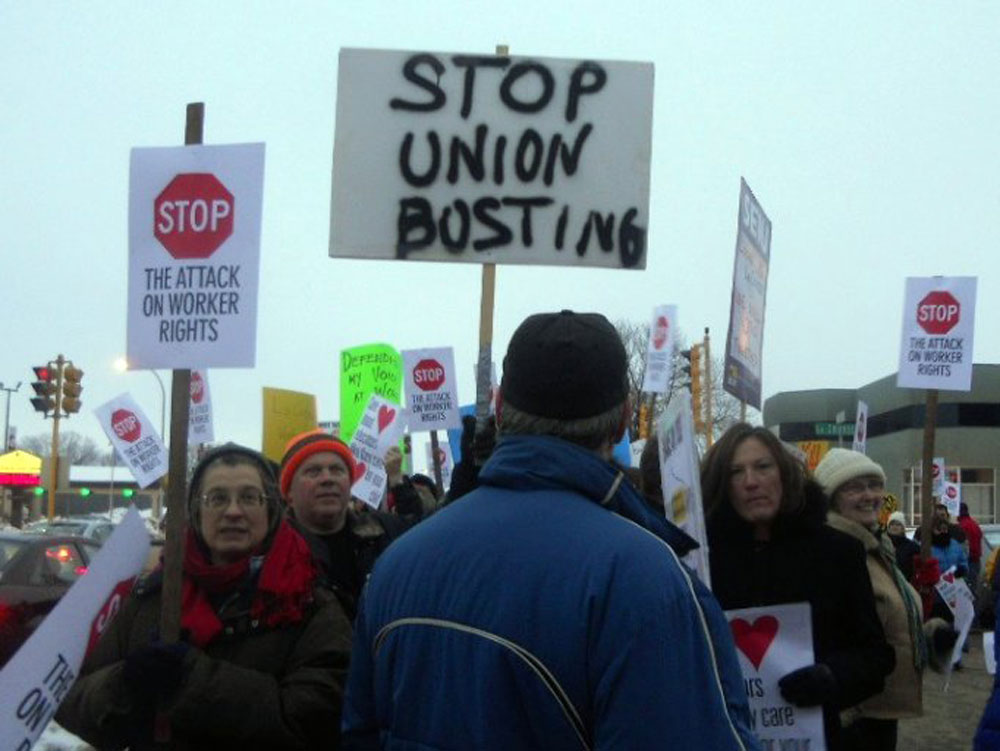
November 6, 2019; Hollywood Reporter
The Marciano Art Foundation in Los Angeles, established by Guess founders Maurice and Paul Marciano in 2013 and opened to the public in 2017, is under investigation by the National Labor Relations Board (NLRB) after the foundation terminated nearly 60 employees four days after the employees announced a unionization campaign. The workers sought higher wages, noting that the museum’s docents and visitor service associates were earning no more than the city’s minimum wage.
The union push coincided with several recent unionization campaigns at museums nationwide, including the New Museum and Tenement Museum in New York City, and the Frye Art Museum in Seattle. The Marciano Foundation cited “low attendance” as the reason for its layoffs, and subsequently announced it would be closed to the public with no immediate plans to reopen, although a current exhibit had previously been scheduled to remain on view through December. Laid-off staff protested the closure on Friday morning with picket signs. If the foundation is found to have fired employees for attempting to unionize, they will be in violation of federal rules that bar employer retaliation against workers who organize.
It is tempting to see in the foundation’s behavior an aberrant corporate mindset at play in the nonprofit sector—the influence of outsiders. And, in fact, the Marciano brothers were known for their hostility to unions during their tenure at Guess. However, management opposition to unions is common in the nonprofit sector, as NPQ has written about many times, most recently covering nonprofit responses to new overtime regulations. After all, it is not just the Marcianos who have resisted unionization; unionization campaigns at the New Museum, Tenement Museum, and Frye Art Museum all received at least some opposition from management, even resulting in worker protests at the New Museum.
Sign up for our free newsletters
Subscribe to NPQ's newsletters to have our top stories delivered directly to your inbox.
By signing up, you agree to our privacy policy and terms of use, and to receive messages from NPQ and our partners.
The push to balance budgets, reduce overhead, and generally do more with less funding creates pressure at nonprofits to limit staff salaries, while expecting staff to work whatever hours are necessary to get the work done. And because nonprofits are mission-driven, many staff feel internal and external pressure to accept working conditions that might otherwise be challenged. These issues are well known in the sector, and frequently brought up in conversations about employee burnout, turnover, and difficulties in attracting talent. However, private sector labor laws apply equally to for-profit and nonprofit workers, and increasingly workers at nonprofits have sought union protections.
In the past two years, there have been numerous high profile cases of labor-management disputes at nonprofit organizations, several of which identify as politically progressive, including at Planned Parenthood in Colorado and StoryCorps in New York. As NPQ discussed in a 2016 article, low wages and poor labor conditions in the nonprofit sector follow the same patterns of racial and gender inequity as in the for-profit sector, further marginalizing women and people of color.
It might be difficult for some nonprofits to provide staff with the wages and working conditions they deserve given current funding challenges. The pressures around budgets and mission are real, and most nonprofits aim to do the best they can with what they’ve got. But that does not absolve nonprofits of responsibility. If the current funding model doesn’t work to provide a living to people in the nonprofit sector, then the funding models need to change. The constraints on nonprofits need to be part of the conversation about how to ensure a sustainable livelihood at nonprofits, not the end of the conversation.—Ellen Davis










